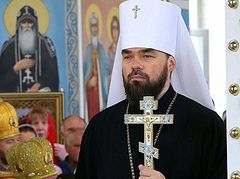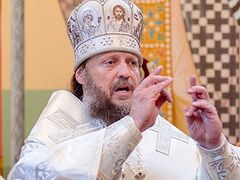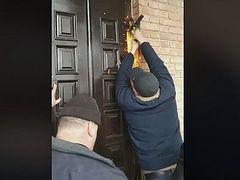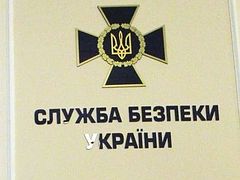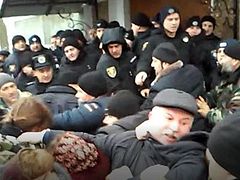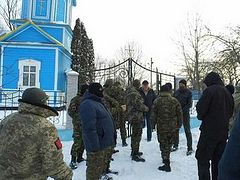Kiev, February 19, 2019
The Ministry of Culture of Ukraine has stated that if a religious organization does not comply with the requirements of the law on renaming, its activities could be terminated by a court decision.
“In accordance with part 3 of article 16 of the law of Ukraine “On freedom of conscience and religious organizations,” in case of violation by a religious organization that is a legal entity, the provisions of this law and other legislative acts of Ukraine could terminate its activities by court decision,” the Ministry told Interfax in response to a question about what procedure is provided in cases of non-compliance.
The Ministry also noted that courts examine a case on the termination of the activities of a religious organization under the civil procedure code of Ukraine at the petition of the body authorized to register the statutes of a particular religious organization of the procurator.
The Ukrainian Parliament passed bill No. 5309 on December 20 and it was signed into law by President Poroshenko on December 22. The law requires that any religious organization with its center in an “aggressor country” must include that country in its official title. In reality, the law applies only to a few organizations based in Russia, and it is especially aimed at the canonical Ukrainian Orthodox Church.
Though the Ukrainian Church is an autonomous body within the Russian Orthodox Church, it has no legal connection to the Russian Church. Its foundational documents indicate that its administrative center is in Kiev. In this regard, the speaker of the UOC, Archbishop Clement (Vecherya) said:
According to all available legal documents, which didn’t appear today but were registered even before the Verkhovna Rada appeared in independent Ukraine, we have no connection with the aggressor state in legal, administrative, or economic terms. We received a tomos of independence already in 1990.
The Church has declared that it will fight the law in constitutional court if necessary, and that, in fact, only the bishops can change the name of the Church.
While the Ukrainian state has presented the law as an attempt to help the faithful more clearly understand what church they are attending, the law is widely understood as a pretext to seize churches of the canonical Ukrainian Church—a process that has already been underway for several years, and which has become more serious since Constantinople created a new church in Ukraine in December.
Philaret Denisenko, the head of the schismatic movement in Ukraine, has even explained how the law on renaming churches can be used to seize the Kiev Caves and Pochaev Lavras from the canonical Church.
The head of the Department of Religious and Ethnic Affairs of the Ministry of Culture, Andrei Yurash, has also declared that the new law is a test of the Church’s obedience to the government. He explained that in the case of disobedience to the law, the state could choose an organization’s name for it.
Follow us on Facebook!


